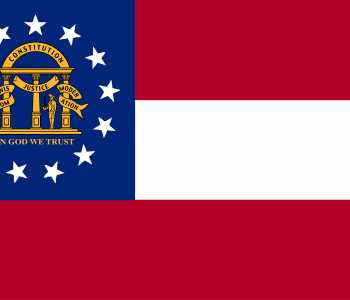Nevada Business License

1 Tax Registration in Nevada
If you want to start a new company in Nevada, you'll have to register for all of the different taxes demanded by the occupation. Use and sales tax are two of the more common types of business taxation in Nevada. While a majority of companies need to register for these types of taxation, your company may have to apply for additional expenses. It all depends on the type of business you're wanting to start. If you're interested in registering for a use or sales tax permit, you should visit the website of the Nevada Department of Taxation. There is a webpage on the site entitled "The Nevada Tax Center". On this page, you can manage an account, revise any false information, and check for other required permits. This site also has a page for frequently asked questions where you can find common queries that have been answered for other users. You can also place your own questions here if you can't find a suitable answer. There are many different tax-related services available on this site. It's important to know that this webpage only works on the browser Internet Explorer.
You should visit the main page of the Nevada Department of Taxation's website for more information regarding tax updates and local events. You will also find contact information on this page.
2. Business Licenses
All businesses that are based in the state of Nevada have to obtain a license for conducting business. These business licenses cost $100 each and incur a yearly renewal fee of the same price. Business owners who fail to obtain a license or pay the annual fees will have to pay a penalty fee of $100. If your business will be purchasing property for storage purposes, you must also register to receive an account for use taxes. There are certain kinds of business that don't have to apply for a business license in the state of Nevada. The following list comprises some of the main types of companies that are exempt from license laws in the state:
- Nonprofit religious entities
- Government entities
- Fraternal organizations
- Charitable organizations
The Nevada Department of Taxation has a document that can help companies determine whether or not their particular business requires a license to operate. There's a good chance that a majority of business owners won't be exempt from these laws, but it never hurts to check.
3. Local Permits
Local governments throughout the state of Nevada may require extra licenses and permits that are different than those required by the state government. Every municipality may operate slightly different than the others. However, there are still some general requirements that are common throughout Nevada. Here are some common permits and licenses that you may need to run a company:
- Zoning Permit
- Signage Permit
- Occupational Permit
- Health Permit
- Business License Permit
- Tax Permit
- Building Permit
- Alarm Permit
4. Incorporation Filing
Businesses based in Nevada that are labeled as limited liability companies, partnerships, nonprofits, and corporations have to register formally with the state government. Information about these application forms and accompanying fees has been uploaded to the Nevada Secretary of State's official site.
Businesses running as sole proprietorships don't have to register to the state. However, that business is going to feature the legal name of the owner. This also means that all business liabilities are personal liabilities and can place an individual's personal assets in danger.
5. Doing Business As
If you're overwhelmed by the risks that come with running a sole proprietorship, you can consider registering your business as a limited liability corporation or company instead. This allows business owners to run a company with a name separate from their personal one. This also means that liability is tied up with the legal entity of the company and not with the individual. You'll have more protection from lawsuits that may arise.
6. Withholding Income Taxes
The IRS advises employers to maintain accurate records about employment tax information for a minimum of four years following the tax year's final quarter. These records should contain the following information:
- Personal information for all employees including social security numbers and contact information.
- The identification numbers for all employers.
- Copies of the tax withholding allowance certificates for each employee.
- Pension, annuity, and wage payment info for all employees.
There is a longer list of items you may want to keep on record which can be found on the official website of the IRS. With this information, business owners can track the growth of their businesses, prepare accurate tax returns, and determine elements of tax deductibility. These records help to keep a business running efficiently and smoothly.
W-2 and W-4 Forms
All employees have to return completed and signed copies of a Form W-4 to their employer. These forms contain information about withholding exemptions which employers must send to the Internal Revenue Service.
It's also the duty of employers to deal with the Form W-2. These forms contain information about paid wages and withheld taxes for every employee.
Each employee needs to receive a copy of their Form W-2 for her or his personal records. Employers should keep all copies not received by their employees on file.
These sources offer applications and information regarding the W-2 and W-4 forms:
- The Filing Instructions and Information page on the SSA webpage.
- The IRS' Employer Tax Guide.
7. Employee Eligibility Verification
Every employer needs to ensure and prove that their employees can work legally within the United States. This is accomplished with the Form I-9. Each employee must complete and sign this form and return it to their employer. Employers are responsible for sending these forms to the IRS for processing. Employees that don't have a relevant I-9 are not legally allowed to work in the US.
8. Reporting New Hires
All employers have to report the re-hiring and hiring of employees. Employers have 20 days to file this report after a new employee beings work. This report will contain the employee's social security number, name, physical address, qualifications for benefits, contact information, and more. As an employer, you'll also be required to offer some information. There is a New Hire Reporting webpage on the website of the Nevada Division of Welfare and Supportive Services.
9. Insurance Requirements
If you are planning to hire employees for a business based in Nevada, you'll have to pay additional taxes for workers' compensation and unemployment. The former tax aids those employees who become injured or sick while working. There is more information to be found on this subject on the Worker's Compensation Page on the official site for the Nevada Department of Business and Industry.
FAQ
What license do I need to run a business in Nevada?
Businesses involved in selling or performing activities will need to apply and get a specialty license or permit.
Are there separate licenses for the state, county, and city?
You must apply for the State of Nevada Business License to do business in Nevada. The form is named "Nevada Business Registration/Department of Taxation." After registering with the state, visit your local county and city to determine if other licensing or permits are needed. You can do this by visiting the county or city website.
What licenses do I need?
- Federal Tax ID
- Nevada State Tax ID Number
- Nevada DBA
- Nevada LLC
- Nevada Trademark
- Nevada Incorporation
- Nevada Business License
- Nevada Wholesale License
Where can I find the licensing forms?
Many forms can be found online via your state or local government websites. Most cities allow you to apply online. You can also download the application and send it in.
What forms do I need to fill out?
What is Nevada's licensing process?
What questions will I be asked?
- Business name
- Business address
- Social security number or business tax ID
- Addresses and names of owners
- Employees
- Type of business (entity).






